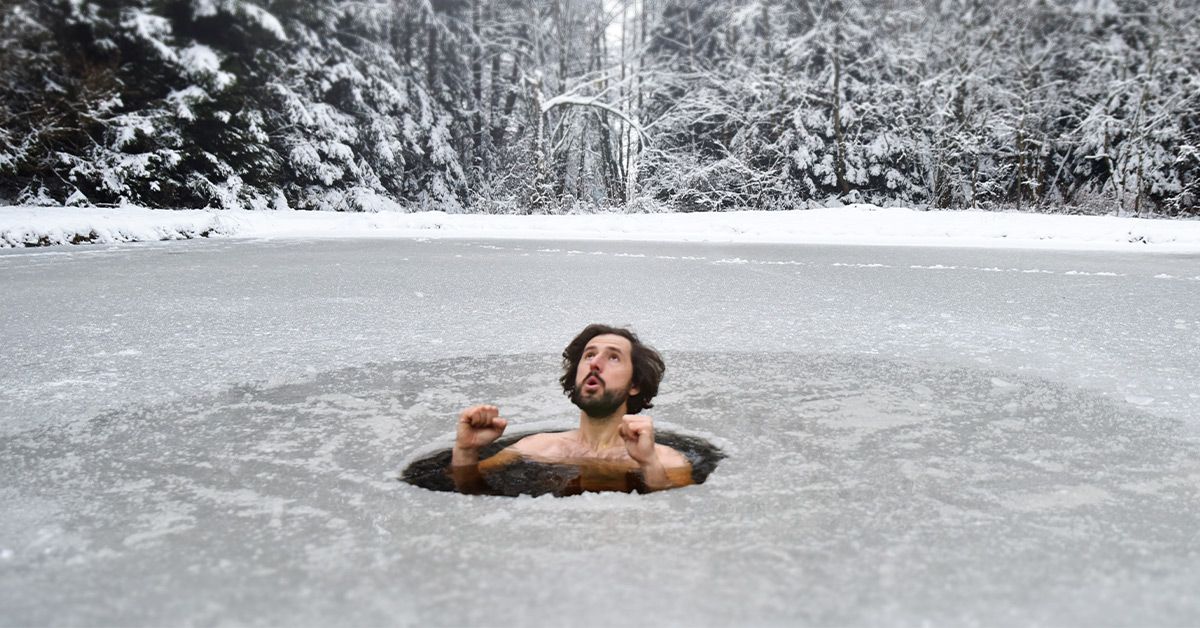Health
Health Benefits of Cold Water Therapy May Be Short-Lived, Study Finds

Introduction to Cold-Water Immersion and Its Study
In an effort to uncover the potential health benefits of cold-water immersion, researchers from the University of South Australia conducted a comprehensive study. This study aimed to explore the effects of practices such as taking cold showers or sitting in ice baths on the general population. By examining 11 previous studies involving over 3,000 participants, the research provided valuable insights into both the benefits and limitations of this increasingly popular practice. The study’s findings highlight the importance of understanding both the physiological and psychological impacts of cold-water immersion, offering a balanced view for those considering it as part of their health routine.
Benefits of Cold-Water Immersion: Stress, Quality of Life, and Sleep
The study revealed several notable benefits associated with cold-water immersion. Participants experienced reduced stress levels for up to 12 hours post-immersion, which could be attributed to the decrease in cortisol levels, a hormone linked to stress. Additionally, those who incorporated regular cold showers into their routine reported a slight improvement in their quality of life, suggesting potential long-term advantages. The research also indicated better sleep outcomes, particularly among male participants, though more diverse studies are needed to confirm these effects across different demographics. These findings suggest that cold-water immersion can be a valuable tool for managing stress and enhancing overall well-being.
Exploring Unsupported Benefits and Physiological Responses
While the study highlighted several benefits, it also revealed that some purported advantages of cold-water immersion, such as boosting immunity and improving mood, were not strongly supported by the evidence. Interestingly, the research showed a temporary increase in inflammation immediately following cold exposure, a response that, while short-lived, could have implications for individuals with certain health conditions. This inflammatory response, though not harmful in healthy individuals, underscores the importance of caution for those with pre-existing medical conditions, such as high blood pressure or vascular diseases.
Limitations and Considerations in Research
Despite its findings, the study had several limitations that are crucial for potential practitioners to consider. The variability in study methods, such as differences in water temperature and immersion duration, made it challenging to draw consistent conclusions. Furthermore, the majority of studies focused on short-term effects, with only one incorporating female participants, which limits the applicability of the results to a broader population. The relatively small sample sizes of some studies also call for further research to validate these findings. These factors highlight the need for more extensive, diverse, and long-term studies to fully understand the effects of cold-water immersion.
Expert Insights and Practical Applications
Experts in the field, including those from the University of South Australia and Rutgers University, offered valuable perspectives on the study’s findings. They emphasized that while cold-water immersion can be beneficial, particularly for athletes recovering from injuries, it should not be seen as a universal solution. The temporary reduction in inflammation, while helpful for muscle recovery, could potentially hinder muscle growth if overused. Additionally, practices like the Polar Bear Plunges, popular for their psychological and social benefits, demonstrate the broader appeal of cold-water immersion beyond mere physical health. However, experts caution that individuals, especially those with health conditions, should consult healthcare professionals before adopting such practices.
Conclusion: A Balanced Approach to Cold-Water Immersion
In conclusion, while cold-water immersion offers promising benefits, including stress reduction and improved sleep, it is not without its limitations and potential risks. The study underscores the importance of a balanced approach, recommending that individuals consider their personal health status and consult with professionals before starting any new therapy. As research in this area continues to evolve, a more comprehensive understanding of its effects will emerge, providing clearer guidelines for those interested in incorporating cold-water immersion into their health routines. For now, it remains a valuable tool for some, but not a one-size-fits-all solution.